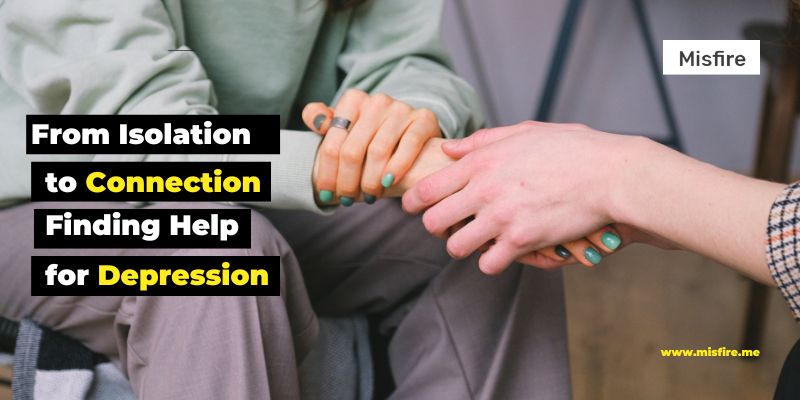The Interplay Between Depression and Isolation
Depression and isolation often go hand in hand. Understanding the intricate relationship between these two conditions is essential for anyone looking to break free from their grip. In this article, we will delve into how depression and isolation are interconnected and explore practical steps to overcome them.
Understanding Depression
Depression is more than just feeling sad; it’s a complex mental health condition that affects your emotional, mental, and physical well-being. Major Depressive Disorder (MDD) is the most common form of depression, characterized by persistent feelings of sadness, hopelessness, and a lack of interest in activities once enjoyed.
Common Symptoms of Depression:
- Persistent Sadness: Feeling down or empty for extended periods.
- Fatigue: A constant feeling of tiredness or low energy.
- Changes in Appetite: Significant weight loss or gain unrelated to dieting.
- Sleep Disturbances: Insomnia or excessive sleeping.
- Difficulty Concentrating: Trouble focusing on tasks or making decisions.
- Physical Symptoms: Aches, pains, headaches, or digestive problems without a clear physical cause.
- Thoughts of Suicide: Frequent thoughts about death or self-harm.
Recognizing these symptoms is the first step toward seeking help and starting the journey to recovery.
The Isolation Factor
Isolation is both a symptom of depression and a contributor to its severity. When experiencing depression, many individuals withdraw from social interactions, preferring solitude over company. This withdrawal can create a harmful cycle where isolation deepens the feelings of sadness and hopelessness, making recovery even more challenging.
How Isolation Worsens Depression:
- Reduced Social Support: Lack of interaction with friends and family means fewer opportunities for emotional support.
- Increased Negative Thinking: Being alone can lead to rumination, where negative thoughts become more persistent and overwhelming.
- Loss of Routine: Isolation often disrupts daily routines, leading to irregular sleep patterns, poor nutrition, and a lack of physical activity.
- Decreased Motivation: The absence of social activities can reduce motivation to engage in self-care or pursue enjoyable activities.
Breaking the Cycle
Breaking the cycle of depression and isolation requires intentional effort and support. Here are some strategies to help you reconnect and start healing:
- Reach Out:
- Connect with Loved Ones: Even when it feels difficult, reaching out to friends, family, or a mental health professional can provide immense relief. They can offer support, understanding, and encouragement.
- Join Support Groups: Participating in support groups, either in person or online, allows you to share experiences and receive empathy from others who understand what you’re going through.
- Online Therapy:
- Accessible Help: If leaving home is a challenge, consider online therapy platforms like BetterHelp. These platforms offer virtual support groups and individual sessions, allowing you to receive help from the comfort of your own space.
- Anonymity and Convenience: Online therapy can be less intimidating than face-to-face sessions, making it easier to open up about your feelings and concerns.
- Social Support:
- Build a Support Network: Surround yourself with positive, understanding people who can offer encouragement and advice. This network can include family, friends, coworkers, or members of a community group.
- Stay Connected: Regularly communicate with your support network, even if it’s just a quick text or phone call. Consistent interaction helps maintain relationships and reduces feelings of isolation.
- Self-Care:
- Prioritize Your Well-Being: Engage in activities that boost your mood, such as exercise, hobbies, or mindfulness practices. Regular physical activity can increase endorphins, improve sleep, and reduce stress.
- Establish a Routine: Creating a daily schedule can provide structure and a sense of purpose. Include time for self-care, social interactions, and activities that bring you joy.
- Professional Help:
- Therapy and Counseling: Seeking help from a licensed therapist or counselor can provide tailored strategies and interventions to manage depression. Cognitive Behavioral Therapy (CBT) is particularly effective in treating depression.
- Medication: In some cases, medication may be necessary to manage symptoms. Consult with a healthcare provider to explore options that may be appropriate for you.
Remember
You’re not alone. Seeking help and staying connected are crucial steps toward healing. Reach out, break the isolation, and find the support you need. Remember, there’s always hope, and reaching out is a sign of strength. If you or someone you know is struggling, consider seeking professional help. You deserve support and connection.

